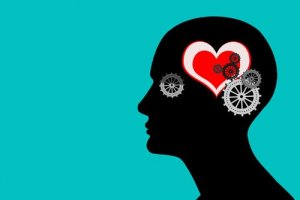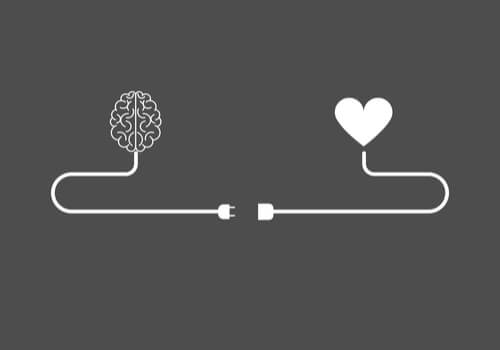Emotional and Rational Decisions: Which Are Better?


Written and verified by the psychologist Valeria Sabater
Emotional and rational decisions… are they really that different? You probably often tell yourself that you have to decide something with a cool head rather than with your heart. You think that, by doing so, you’re more likely to make the right decision. It’s as if you have to deal with these two “opposing” factions on a daily basis in order to decide what to do.
In some ways, this is true. No one acts or decides things simply by listening to their emotions. Nor do they exclusively listen to their cold, hard, and rational logic. The fact of the matter is that your brain is a hyper-connected organ. Every area and structure is linked to others.
The prefrontal cortex (linked to the most complex executive functions, based on analysis, attention, or reflection) maintains a constant connection with the deeper areas of the brain that relate to emotions. Therefore, the world of emotions and feelings is present in every decision you make. In every meditated and reasoned choice, you’ll find the imprint of your emotions.
However, despite the existence of these channels where information passes between emotions and logic, there’s one peculiarity you can’t ignore. Emotions are always priority. The human being is, above all, an emotional creature and this fact will always bring you to many crossroads and dilemmas.
“Perhaps the most indispensable thing we can do as human beings, every day of our lives, is remind ourselves and others of our complexity, fragility, finiteness, and uniqueness.”
– António Damásio-

Emotional and rational decisions
Emotional decisions get bad press. It’s as if you’ll always make the wrong decision when you allow yourself to get “carried away” your impulses, your supposedly unreasoned needs, or by intuition. Nevertheless, and as ironic as it may seem to you, most of the choices you make in your daily life are guided by the very emotions that shape your behavior and actions.
However, acting on your emotions doesn’t necessarily lead to mistakes. Emotions are catalysts in your relationships. They move you to connect with people and also allow you to make choices in different areas of your life so that your tastes, personality, and needs are in tune.
Emotions, after all, only seek balance. They aim to ensure your internal balance and, of course, your survival.
Moreover, in the academic world, some studies shows that we should correct this misconception that emotional decisions are somehow always irrational acts.
Studies, such as those conducted at Columbia University by Dr. Michel Tuan Pham, indicate that humans should stop thinking that their emotional and rational sides are separate. In other words, emotions can also be logical and rational.
However, there are also clear and obvious exceptions. There are times when we make decisions based on adverse emotional states. These are moments when there’s no internal harmony. An unresolved problem, a need, or an unmet need can lead you to make wrong choices.
Emotional states that will lead you to make decisions you may regret
We must be clear about this: the best decisions are made when you combine logic and emotion. However, in order to make these decisions out effectively, you need your emotions to play in your favor. Nevertheless, this doesn’t always happen because there are states that limit you in different ways, and this means that you aren’t mentally focused. Here are some of them:
- Sadness. If you make a decision when you’re sad, depressed, or feeling down, then you’ll settle for the minimum and won’t be demanding with yourself.
- Excitement. When you’re full of joy, enthusiasm, or excitement, this can affect your ability to make good decisions. In these cases, you’ll often let yourself get carried away by your impulses.
- Anxiety. Anxiety, stress, and any other mood disorders will hinder your ability to make decisions. Not only will they lead you to make decisions that you may later regret, but you’ll also find it more difficult to think, evaluate, and reflect.

Emotional decisions made with logic and reason are the best
As renowned scientist António Damásio points out, emotions aren’t the enemies of reason. They are, in fact, an indispensable part of every decision you make and, because of this, you must be fully aware of them.
If you understand them, manage them, and face their challenges in times of discouragement or worry, then they’ll be your best allies.
Decisions are the heartbeats that trace your paths in life. It’s true that you’ll always make good and bad decisions, but the most important thing is to not act impulsively. You need to tune your needs to your desires and your experience to your intuition.
You can never separate emotion and logic but, if you use them well, they can bring you closer to happiness. Emotional and rational decisions can be combined for your greater well-being!
This text is provided for informational purposes only and does not replace consultation with a professional. If in doubt, consult your specialist.








